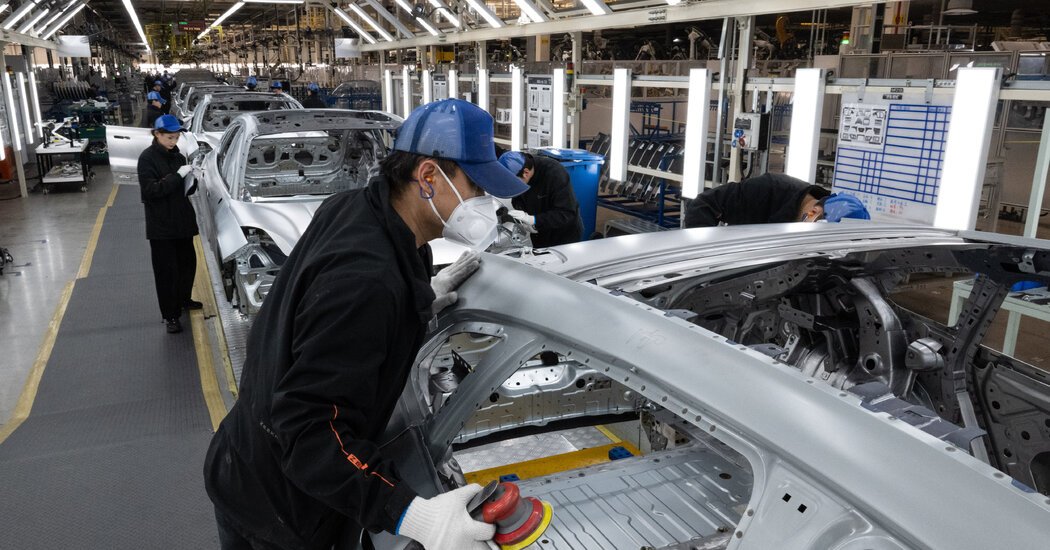China on Monday threatened to impose tariffs on pork imports from Europe, in what appeared to be retaliation for the European Union’s decision last week to impose preliminary tariffs on electric cars imported from China.
China’s Ministry of Commerce announced that it had opened an investigation into whether pork from the European Union was being dumped in China at unfairly low prices. The case could result in tariffs on dozens of products, from pork chops to pickled pig intestines.
The ministry said it was acting on a request from the China Animal Agriculture Association, a government-affiliated group. A person answering the phone at the association declined to comment.
The European Union had no immediate comment on the Chinese action.
By choosing pork imports as the apparent payback for the electric vehicle tariffs, China is turning to a playbook it followed during its last major trade fight with the European Union over a decade ago.
In 2013, the European Union moved to impose 11.8 percent tariffs on solar panels from China. China responded by threatening tariffs on wine from Europe and then launched a successful campaign to persuade national governments in Europe to force E.U. leaders in Brussels to back down.
Farmers are a potent political lobby in Europe who have been looking for ways to increase sales to China. Experts in China’s trade policy said Beijing might be hoping to pressure the European Union to back down again.
In addition to the pork trade case, the Ministry of Commerce already began in January a case against imports of Cognac and other European wine-based spirits that come mainly from France. The French government has been an early supporter of tariffs on electric cars from China, following allegations that China has heavily subsidized the industry.
It’s not clear China will succeed in stopping the European Union’s electric vehicle tariffs. Chinese imports of solar panels decimated Europe’s solar panel manufacturing industry after the union rescinded its tariffs. European governments are still looking for ways to revive the industry. Few in Europe want electric car production to suffer a similar fate.
China also has a huge overall trade surplus with Europe. In recent months, China has sent four shipping containers’ worth of exports to Europe for each container of imports that comes the other way.
For China’s part, tariffs on pork could help protect an important industry from international competition. Pork prices fell 14 percent last year, as the country’s pig farmers expanded their herds. Prices have begun to recover in the past month but are still half of what they were three to five years ago, when an epidemic of African swine fever killed much of China’s herd.
China is by far the world’s largest market for pork, a dietary staple. Average consumption per person in some provinces, like Hunan, reaches nearly a quarter-pound of pork a day.
China has yet to retaliate over the Biden administration’s decision in early May to raise American tariffs on electric cars, lithium batteries and other products from China. China has criticized the U.S. tariffs, but has refrained from the rapid escalation in retaliatory tariffs that it pursued during the Trump administration. That approach in 2018 and 2019 ended up backfiring for Beijing. The Trump administration quickly broadened its tariffs, many of which have stayed in place ever since.
Beijing imports fairly little from the United States after years of government-led efforts to reduce dependence on imports, so it has had limited options for broad retaliation.
Li You contributed research.



